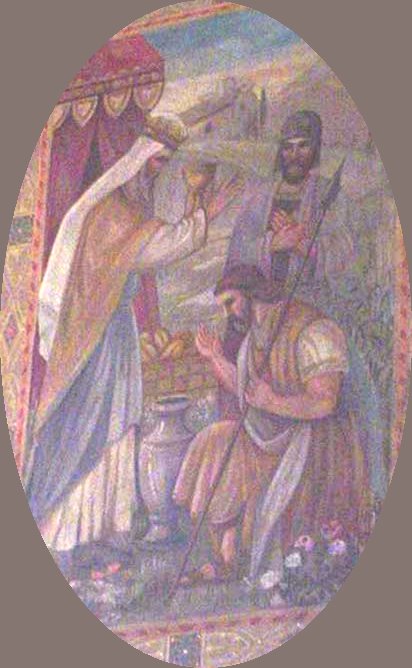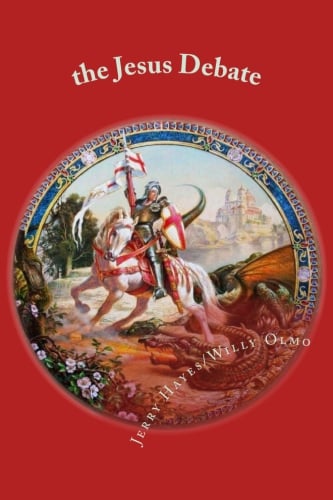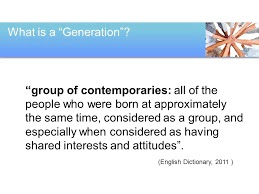 Both Sabellius and Tertullian were from North Africa. It is easy to get the Economical Trinity, of Tertullian, and the Modalism of Sabellius, confused. At first glance they look and sound very much the same. Josef Lossl states: “Tertullian’s elaborate discussion of many biblical text illustrates how important the biblical argument was in the early church, and how much ground the Monarchians held in this area. Tertullian had to offer a complete re-reading of the relevant text in order to lay the foundations for his own project. This then turned out to be massive – no less than an almost full blown ‘Trinitarian Theology,’ the first of its kind.
Both Sabellius and Tertullian were from North Africa. It is easy to get the Economical Trinity, of Tertullian, and the Modalism of Sabellius, confused. At first glance they look and sound very much the same. Josef Lossl states: “Tertullian’s elaborate discussion of many biblical text illustrates how important the biblical argument was in the early church, and how much ground the Monarchians held in this area. Tertullian had to offer a complete re-reading of the relevant text in order to lay the foundations for his own project. This then turned out to be massive – no less than an almost full blown ‘Trinitarian Theology,’ the first of its kind.
Starting from the insight that God, ‘I and the Father’ ( John 10:30), ‘are one’ in the sense that there is a unity of being as well as purpose and will in God, he puts out that in terms of the ‘economy of salvation’ this unity develops into, or reveals itself as, a “trinity:” Father, Son and Spirit. Cautious of potential Monarchian criticism, he insists that God is one in being (or substance) and there is only one degree of being in God. In other words, the Son and the Spirit are no lesser gods. The differentiation consists in the function of each divine ‘person’ within the company or history of salvation. This results in God taking on different forms and ‘gradations’ (cf Dünzl 2007:32). Tertullian tries to compare this with the flow of water. The source is analogous to the Father, the river to the Son and the canal to the Spirit. The substance and ontological status of the water are the same in each case, but the form and function are different.”
It is clear to see from Lossl (and, even from Tertullian himself) that Tertullian was a harbinger of a new Godhead theology. Such phrases as “re-reading of the relevant text” (meaning a new reading from what was commonly considered to be the correct reading), and the admission that Tertullian’s writing on the trinity was “the first of its kind,” plus the declaration by Tertullian that the unity of God “develops into, or reveals itself as, a ‘trinity’” is sure evidence that here we have an innovation to Christian teaching—that was unorthodox by all accounts. The visible difference between Tertullian’s Economical Trinity and Modalistic Monarchianism (Sabellianism) was Tertullian’s introduction of the term persons. The introduction of the word “persons” has been the single most unfortunate event in the development of the Trinity. Great thinkers of the Church have attempted to correct the error: Augustine said, “three somewhats;” Anselm, “three I know not what;” Barth, “three ways of being” or “three modes;” Professor Moses Stuart said, “distinctions.” It was John Calvin that articulated it clearly, and then Watts that brought it to America, where Moses Stuart took up the phrase and made it a pillar of New England Trinitarianism: “A threefold distinction in the Godhead.”
Moreover, Tertullian’s allegory of water: fountain, river and canal to represent Father, Son and Holy Spirit is little different (if any) from Modalism’s illustration of light: sun, rays and heat.
(Excerpted from "Godhead Theology" pages 91, 92)
Apostolically Speaking
☩☩ Jerry L Hayes
Be sure to listen and subscribe to the Bishop's Podcast: Apostolic Bishop, at:
Read other Essays from the pen of the Bishop on the subject of the Godhead:
"The Worlds, Made By The Son"
"Hebrews 13:8 vs 1 Corinthians 15:28"
"Glory With The Father"
"Philippians 2:6-8, Answering Trinitarian Objections"
"How Is God One?"
"Hebrew Monotheism"
"An Exegesis of 1 Corinthians 8:6-7"
"Answering Trinitarian Objections To The Oneness Faith"
https://bishopjerrylhayes.blogspot.com/2013/03/answering-trinitarian-objections-to.html
https://bishopjerrylhayes.blogspot.com/2013/03/answering-trinitarian-objections-to.html
"The Apostolic Creed"
"Jesus Is Father God"
"Homoousia And The Creed Of Nicaea"
"The Triquetra And Modalism"
"Modalism, Simultaneous Or Sequential?"
"Micah 5:2-4, An Exegesis"
"Elohim, the Plural form For God"
"Can the Deity of Jesus Be called The Son Of God?"
"Mathematical Equation For The Godhead"
"Hebrew Monotheism, Second Edition"
"Jesus, On God's Right Hand"
"The Name of the Deity" (The Tetragrammaton)
"Christology of the Apostolic Church Fathers"
"Christian Modalism challenged by the Greeks"
"The Apologists and the Logos Christology"
"Logos Christology"
"The Seven Spirits of God"
"Historical Numerical Superiority of the Monarchians"
"How Is God One?" Second Edition
"Creed of Nicæa (Creed of the 318) Affirmed"
"Another Comforter (Answering Objections to Modalism)"
"Echad vs Yachid (Answering Objections to Modalism)"
"The Godhead Teaching of Ignatius of Antioch"
"Hebrews 1:8, (Answering Objections to Modalism)"
"Godhead Theology of the Tabernacle of Moses"
"Proper Biblical Understanding of the Word 'Person'"
"Defense of Isaiah 9:6, Answering Objections to Modalism"
Defense of 1 Timothy 3:16 (Answering Objections to Modalism)
Godhead Theology is a study of Christian Godhead theology. ... Was He God or not? In Godhead Theology Bishop Jerry Hayes follows that debate through the first 300 years of the Church's history. Our book is in five sections: Section One ... demonstrates Modalistic Monarchianism as the original orthodoxy of the Chruch; Section Two introduces the Apostolic Creed ... ; Section Three is an affirmation of Modalistic Monarchianism; Section Four is Modalism's responses to objection from the pluralists Trinitarians, Binitarians, Arians and Semi-Arians. Included are two comprehensive indexes: Subject Index and Scripture Index. 613 pages.
Own this classic book today by ordering from the link provided here:https://www.amazon.com/Godhead-Theology-Modalism-Original-Orthodoxy/dp/1516983521/ref=sr_1_4?keywords=Bishop+Jerry+hayes&qid=1554244653&s=books&sr=1-4
Own this classic book today by ordering from the link provided here:https://www.amazon.com/Godhead-Theology-Modalism-Original-Orthodoxy/dp/1516983521/ref=sr_1_4?keywords=Bishop+Jerry+hayes&qid=1554244653&s=books&sr=1-4
The Jesus Debate is a written debate between Bishop Jerry Hayes and Prof. Willy Olmo. This book contains all papers submitted between this two knowledgeable men. Bishop Hayes affirms and defends the Oneness of God; Prof. Olmo affirms and defends Arian Unitarianism.
Own this classic debate by ordering from the link provided here:
The Hayes vs Mulbah Debate is a formal written debate on the subject of the Godhead, between Bishop Jerry L Hayes (Onenessarian) and Minister Andrew Mulbah (Trinitarian). This work contains the debate in its entirety plus other related material. Included are the two Creeds from which both disputants argue their respective views: The Apostolic Creed (the statement of faith for the Oneness/Modalistic Monarchian theology) and the Athanasian Creed (the official statement of faith for the Trinitarian theology).
Own this remarkable debate today, by ordering it from the link provided here:https://www.amazon.com/Hayes-Mulbah-Debate-Oneness-Trinity/dp/1727358953/ref=sr_1_8?keywords=Bishop+Jerry+hayes&qid=1554244653&s=books&sr=1-8
Own this remarkable debate today, by ordering it from the link provided here:https://www.amazon.com/Hayes-Mulbah-Debate-Oneness-Trinity/dp/1727358953/ref=sr_1_8?keywords=Bishop+Jerry+hayes&qid=1554244653&s=books&sr=1-8
THANK YOU FOR YOUR SUPPORT BY
PURCHASING OUR BOOKS OF YOUR LIBRARY
Be sure to listen and subscribe to the Bishop's Podcast: Apostolic Bishop, at: https://podcasts.apple.com/us/podcast/the-apostolicbishops-podcast/id1472262392?fbclid=IwAR2FlRYnNsw5Vu_Bz4PjyEdiAxFMawhtD2BFr_S7WysrpFcYjuQYSHGAlZ










